Weight Gain During Period: 7 Common Causes & Prevention Tips
There's a lot you need to learn about PMS symptoms and weight gain during that time of the month.
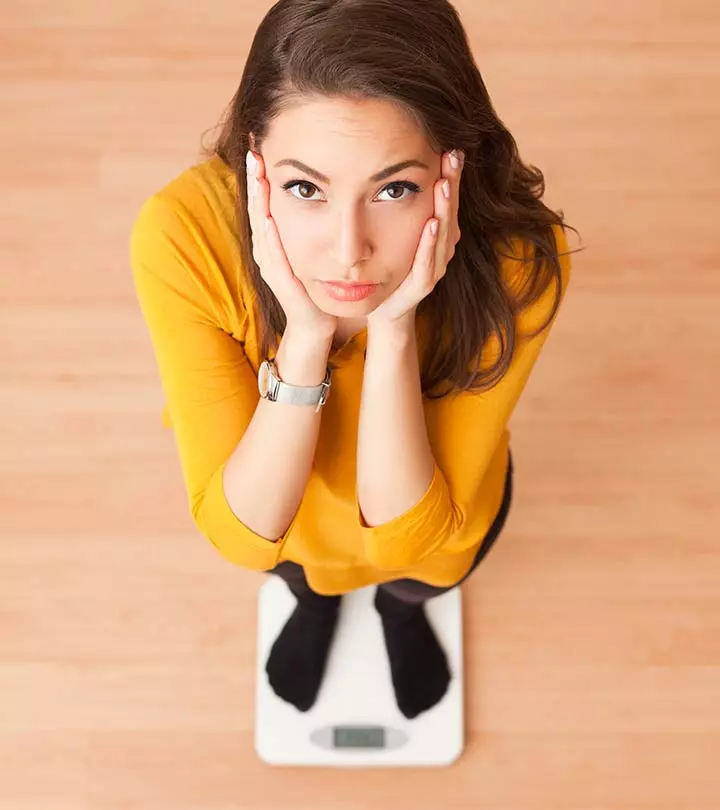
Image: ShutterStock
The monthly menstrual cycle helps women prepare for pregnancy (1). But do you gain weight when on your period? Well, yes, you may gain between 2 to 5 pounds on your period. But this weight gain stops within a few days after your periods end. Weight gain during periods could also be a symptom of premenstrual syndrome (PMS). PMS is a combination of physical and emotional symptoms that occur after theovulationi The phase where one of the ovaries releases a mature egg two weeks before the menses. stage. These happen when the estrogeni This hormone aids in the growth and maintenance of the female reproductive system and the development of feminine traits like breasts. and progesteronei This hormone released by the ovaries regulates periods and supports the uterus during the initial stages of pregnancy. levels drop suddenly. Thankfully, the symptoms subside when you get your periods, and the hormone levels rise again(2).

Women with PMS become cranky, and the weight gain may only add to the emotional distress. But worry not – the universe is not conspiring against you. We are all in it together. If you are struggling to shed the period weight gain, we can tell you a few ways that can help. Continue reading to understand how you can get rid of period weight gain.
In This Article
Is Weight Gain During Your Period Normal?
Yes, gaining weight during your periods is normal. Be it water retention or hormonal changes, if you find yourself puffing up during your periods, rest assured that it is a temporary change and is a common occurrence during menstrual days. However, being aware of the possible causes can help deal with it better.
An international survey used a sample of 238,114 Flo mobile app users aged 18 to 55 from 140 countries to determine common premenstrual symptoms. 28.61% reported its interference with daily life. Among the most common symptoms was food cravings with a staggering percentage of 85.28%, followed by mood swings or anxiety (64.18%), and fatigue (57.3%).
Key Takeaways
- Many women frequently struggle with weight gain before and after their periods.
- Gaining weight might result from hormonal changes that occur during the menstrual cycle.
- Water retention and weight gain can be due to fluctuations in estrogen levels.
- Increased appetite and cravings throughout the menstrual cycle can cause overeating, giving way to weight gain.
- Stress and sleep deprivation are also two possible reasons behind gaining weight.
- Some women may gain weight after taking birth control tablets.
7 Reasons For Weight Gain During Periods
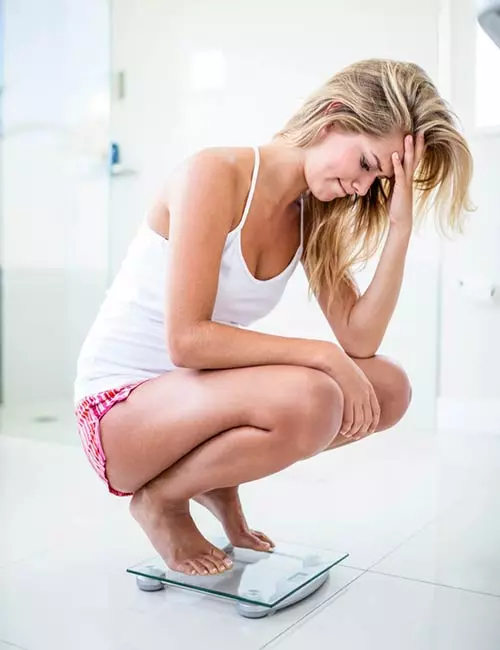
1. Water Retention
Water retention is one of the major reasons for weight gain during periods. This mainly occurs due to hormonal fluctuations during the menstrual cycle. After ovulation, progesterone and estrogen levels fall down, which is a sign that you are due for your next period. These two hormones regulate water balance in your body. When this is in the lower range, tissue fluids accumulate, and your start to feel heavy and plump and gain weight(3).
You can feel water retention or heaviness in your breast or stomach or can notice a little swelling in your extremities. This increases water weight, but it does not mean that your body fat percentage has increased.
Melanie Murphy, a vlogger, shared how she gained weight before periods in her personal vlog. She said, “A couple of days before I get my period, I am eight to ten pounds heavier on a weighing scale. It’s just not a nice feeling to have so much water retention (i).”
2. Disturbed Digestion
Hormones are the main culprits here. Improper hormonal balance slows down the peristaltic movement of the gut and impairs the digestion process. Sometimes, fluctuating estrogen and progesterone hormones increase gas retention in the stomach, causing bloating or distention. You may experience stomach cramps before and during your periods due to the secretion of prostaglandins, hormone-like chemicals that initiate uterus contraction. Studies showed that these symptoms increased rectal sensitivity among IBS patients, and they felt it quite often during their periods(4).
3. Skip Workouts
Most women tend to skip workouts when they are menstruating. This happens because when you are in your bleeding phase, it doesn’t matter if it is heavy flow or low, during this phase you tend to not feel your best, and your brain and body become sluggish and lazy. So, either you skip your workout sessions completely or go about them without putting in real effort. As a result, you gain water weight and start storing fat (as you cannot stop binge eating).
Instead of skipping your exercise regimen completely, it is better to practice some breathing exercises and easy yoga postures for proper supply of oxygen to your muscles to ease out menstrual cramps. Always consult a fitness expert and do not practice on your own.
4. Gut Problems
Most women have gut problems like constipation, indigestion, and bloating when they are on their periods. Elevated levels of progesterone just a few days before your periods slow down gut movement. The entire digestive tract becomes very sluggish, causing constipation (4).
 Did You Know?
Did You Know?5. Food Cravings

Increased cravings for food and overeating can also be other reasons for weight gain before and during periods. The serotonin-estrogen cycle is the main reason for overeating. Estrogen levels generally start to increase just a few days before your period and fall just right before your period, which regulates serotonini A chemical in the brain that regulates a variety of functions, including mood, sleep, appetite, and memory. secretion and tends to decrease it. Low serotonin levels cause cravings for more sugary and processed foods, which are major contributors to weight gain (6).
 Did You Know?
Did You Know?6. Decrease In The Level Of Magnesium
Just before your menstruation cycle, the magnesium levels in your body might drop. This can lead to lower levels of insulin, which increase the craving for glucose. This leads to increased food cravings, especially for high-sugar foods, which can lead to weight gain before and during your periods.
7. Mood Swings
Mood swings (or cranky moods) are the most common symptoms of PMS. Food cravings and mood swings are often linked. The hormonal gameplay makes you crave salty and sugary foods. These foods are not healthy enough to maintain your weight (8).
These are the seven major reasons for weight gain during periods. However, there are a few other symptoms accompanying weight gain during periods.
Symptoms In Addition To Weight Gain
The temporary weight gain during periods characterized by bloating, swollen hands and feet, and tender breasts, is also accompanied by one or all of the following symptoms that are also normal during your menstrual cycle:
- Mood swings and irritability
- Anxiety or depression
- Crying spells or angry outbursts
- Confusion or poor concentration
- Social withdrawal
- Irregular sleep patterns
- Appetite changes
- Changes in sexual desire
- Fatigue and exhaustion
- Headache, cramps, and abdominal pain
- Acne and pimples
- Breast tenderness
- Gas, bloating, or diarrhea
These symptoms are usually temporary and can differ from person to person. You can better manage how you feel in your weight loss journey and learn to cope with the changes by monitoring and understanding your own patterns.
While you can expect any of these during your menstrual cycle, the main question here is – how to prevent or protect yourself from gaining that unnecessary weight? Here’s a strategic plan to prevent weight gain before and during periods. Take a look.
Ways To Prevent Weight Gain During Periods

Here are the most practical ways to prevent weight gain during your period.
- Be Prepared
It might sound vague, but when you try to understand your cycles and your body’s response to hormonal changes, you might be able to prevent all the causes of weight gain during your periods. When you know what to expect, it is easier to manage any symptoms and feel more in control during challenging period days.
Stock your kitchen with healthy snacks like popcorn, fruits, and homemade low-sugar brownies so that once the hunger hormones kick in, you don’t resort to unhealthy snacking and gorging on high-sugar and high-sodium foods.
- Cut Back On Caffeine
Since you will feel a lot more anxious when you PMS, cutting back on caffeine will make you calmer and prevent other related symptoms like crankiness (9), (10). Though some research suggests that there is no link between caffeine consumption and PMS symptoms, there is no harm in reducing the amount of intake (11).
 Quick Tip
Quick Tip- Drink Water

Drinking water will keep your cells hydrated, flush out the toxins from your colon, and keep your metabolism active. This, in turn, will prevent weight gain before and during your periods.
- Do Not Skip Meals
Consume at least 5-6 meals per day. Along with breakfast, lunch, and dinner, you should include two snacks per day. This will keep your metabolism from stalling, balance your hormones, and keep you satiated.
- Cut Down On Salt
Salty or high-sodium foods like junk foods and processed foods can cause water retention in your body. Cutting down on these before and during your periods will help prevent water weight gain.
- Do Not Skip Your Workout Sessions

While you may not feel like going to the gym or working out at home during your periods, exercising will help uplift your mood. And when you feel better, you will not binge on unhealthy food, sleep well, and feel less stressed out.
- Take Supplements
Calcium helps combat PMS symptoms, and hence, it is advised to consume enough calcium during the period (12). You may also use certain natural herbal remedies for controlling your weight gain.
Magnesium is another important nutrient that you must consume to balance the menstrual hormonal changes in your body (13).
Omega-3 supplements or fish oil supplements may also help reduce the stress levels during PMS, keeping you from consuming a lot of unhealthy food.
However, remember, it is necessary to consult an expert medical professional before consuming any supplements or medications as not doing so can have adverse effects on your body.
- Include Vitamins
Vitamin B6 helps reduce estrogen levels and increase progesterone levels in the blood. This helps in balancing the fluctuating hormones, which control weight gain. To get rid of the PMS symptoms during menstruation, you may take upto 100 mg of vitamin B6 per day (14).
- Adopt Relaxation Techniques
High stress can worsen PMS symptoms and cravings. So, finding ways to relax and calm your mind can positively influence your moods and feelings throughout the month (15). Taking time to practice relaxation techniques like deep breathing or meditation can help lower stress (16).
- Recognize The Triggers

Maintaining a PMS diary will help you identify the time of the month around which you start your period and understand how you feel, and what actions you take. This will make you more conscious in the next menstrual cycle the next time you binge eat or skip workout sessions.
Also, if you are already on your periods and feel bloated, a diet plan including kefir, spinach, chocolate, avocado, kimchi, nuts, and seeds can help minimize symptoms and alleviate uneasiness.
Along with proper hydration, a healthy balanced diet, and light exercise, there are a few medications that can help alleviate the symptoms.
Other Medical Treatment Options For Period Weight Gain
You should check with your gynecologist before deciding on any medicines or treatment options for period weight gain and other associated PMS symptoms. Your doctor may prescribe you diuretics to help reduce the water retention or suggest treatment options to help balance the hormonal fluctuations. Moreover, it would be practical to read about hormonal weight gain, as it is also responsible for weight fluctuations during periods. Knowing why it happens, the types of hormonal imbalances, the symptoms, and remedies to cure them at home, if any, can help you manage it well. Still, a doctor’s discretion is paramount.
These are some of the treatment options for weight gain during periods. But how much weight gain is normal during this time? Scroll down to the next section to know more.
How Much Weight Gain Is Normal During Your Periods?
Gaining weight during periods is not a cause for concern. A study found an increase of about 0.5 kg was observed during the menstrual cycle due to fluid retention and bloating (17). However, it is important to note that this weight gain varies from person to person and goes away on its own once the periods end.
If you are experiencing weight gain along with other symptoms for a long time, then it might be time to seek medical attention. Scroll down to know more.
When To See A Doctor
Consider consulting a doctor if you find your PMS symptoms or the additional weight gain significantly hampering your daily activities or affecting your lifestyle considerably. It is really important to take an active role in your health, especially when dealing with menstrual symptoms. Discuss what you are going through with your healthcare provider transparently. They can help you find the right treatment options to help relieve your PMS symptoms. This approach can lead to better management of your health and help you feel more in control throughout your cycle.
Infographic: Foods To Eat During Your Periods
You may often find yourself asking, ‘Why do I gain weight on my period?’ during your period. The answer is it depends on a variety of factors, such as water retention, skipping your workout, or low magnesium levels, which may increase your cravings for sugary and junk foods. As a result, you may end up gaining weight during your periods. Avoiding caffeine and alcohol, eating a healthy diet, and getting enough sleep may keep you from gaining weight during this phase. In addition, you also can consume the following foods during your periods to combat bloating and water retention.
Some thing wrong with infographic shortcode. please verify shortcode syntax
Do you tend to feel bloated and gain weight on your periods? Well, now that you know what causes weight gain during periods, you may be able to tackle it better. Drinking water, cutting back on caffeine, staying active, and taking supplements can help you stay better prepared for weight gain and PMS as well. While periods are unavoidable for all women, the above-mentioned
Frequently Asked Questions
Do I gain weight before my period?
Yes, it is natural to gain weight due to water retention before the period, after the ovulation stage is complete.
How much weight do I gain during my period?
You can gain anywhere around 2-5 pounds before and during your period.
How long does period weight gain last?
For many women, the weight gain lasts until the first day of their period. But if you have PCOSi A hormonal disorder that results in enlarged ovaries with tiny cysts on the margins and affects menstrual cycles. and other metabolic or health issues, your weight gain can last longer. And, it can be difficult for you to shed the extra pounds.
How long will it take to lose water weight after your period?
You will start losing weight right when your period starts. And it will take about 3-4 days to lose the water weight. However, depending on your lifestyle and food habits, it may take 7-8 days to lose the weight gained.
Do you burn more calories during your period?
There is not enough scientific evidence to prove that you can burn more calories during your period. It depends on your body type, activity levels, and metabolic rate.
Does metabolism increase during your period?
While there is still insufficient data, preliminary studies indicate that the Basal Metabolic Rate or BMR decreases during the days of your period (18).
Is it harder to lose weight when you have your period?
While your period may not affect your ability to lose weight, it may adversely affect your mood, and its associated symptoms, like stomach cramps, may hinder your workout routine.
Do you burn more calories the week before your period?
Possibly. A study suggested that your resting metabolic rate increases in your luteal phase (the week before your period). However, more research is needed to confirm the findings (19).
Illustration: Unknown Reasons For Weight Gain During Your Period
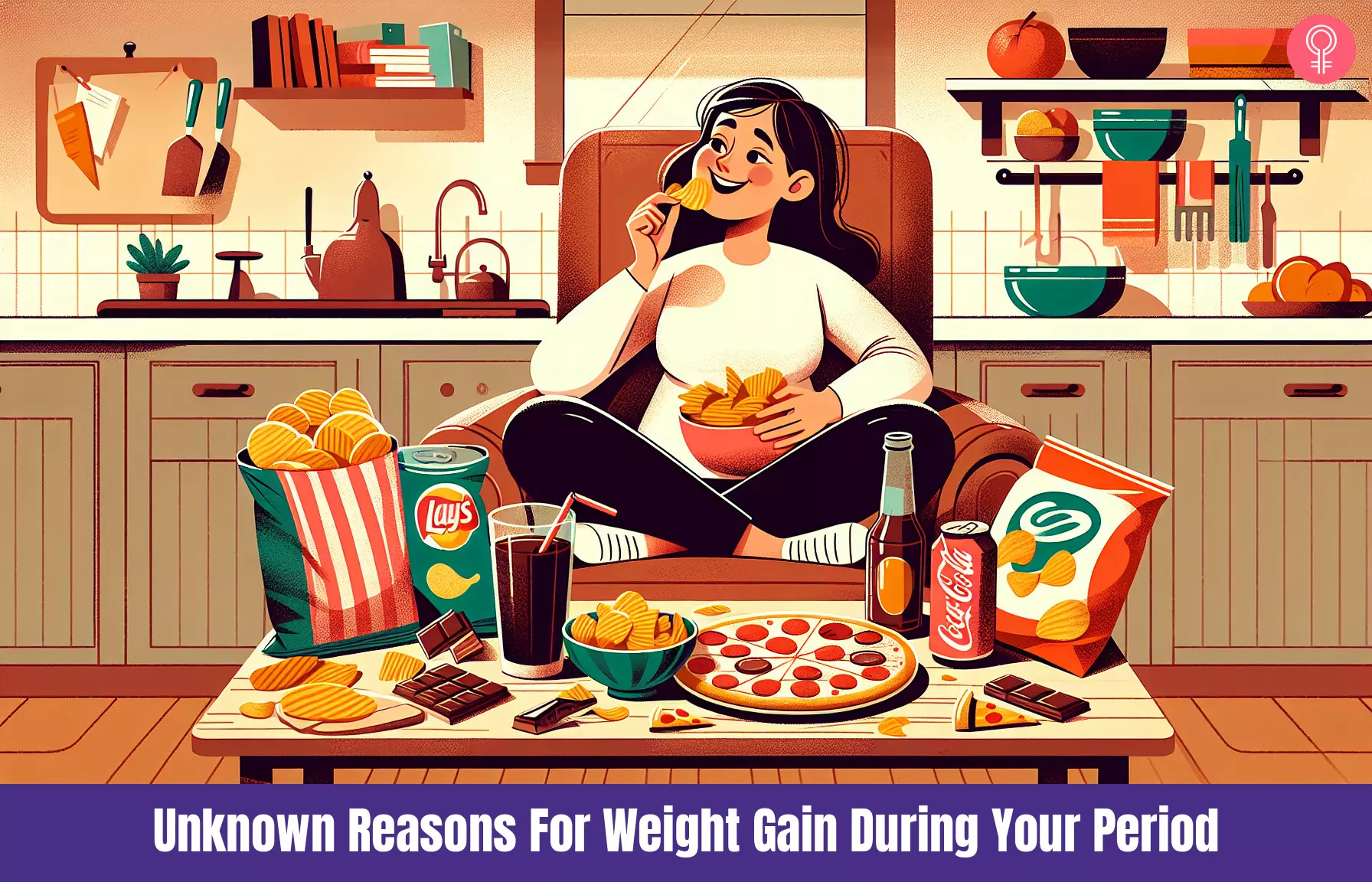
Image: Dall·E/StyleCraze Design Team
It’s normal to gain weight during your period, and this video will help you understand why. Watch this video to learn how to manage your weight and stay healthy while on your period.
Personal Experience: Source
StyleCraze's articles are interwoven with authentic personal narratives that provide depth and resonance to our content. Below are the sources of the personal accounts referenced in this article.
i. I Gain 10lbs Overnight Before My Period | PMS Party 3 | Melanie Murphy; https://www.youtube.com/watch?v=5gFDbUFMj0cReferences
Articles on StyleCraze are backed by verified information from peer-reviewed and academic research papers, reputed organizations, research institutions, and medical associations to ensure accuracy and relevance. Read our editorial policy to learn more.
- What happens during the typical 28-day menstrual cycle? Office On Women’s Health, U.S. Department of Health Services.
https://womenshealth.gov/menstrual-cycle/your-menstrual-cycle - Premenstrual Syndrome (PMS)
https://womenshealth.gov/menstrual-cycle/premenstrual-syndrome - Fluid Retention over the Menstrual Cycle: 1-Year Data from the Prospective Ovulation Cohort. Obstetrics and Gynaecology International, US National Library of Medicine, National Institutes of Health.
https://www.ncbi.nlm.nih.gov/pmc/articles/PMC3154522/ - The menstrual cycle affects rectal sensitivity in patients with irritable bowel syndrome but not healthy volunteers. Gut, US National Library of Medicine, National Institutes of Health.
https://www.ncbi.nlm.nih.gov/pmc/articles/PMC1773170/ - Gastrointestinal symptoms before and during menses in healthy women https://www.ncbi.nlm.nih.gov/pmc/articles/PMC3901893/
- Menstrual cycle and appetite control: Implications for weight regulation. Researchgate.
https://www.researchgate.net/publication/13997586_Menstrual_cycle_and_appetite_control_Implications_for_weight_regulation - Does culture create craving? Evidence from the case of menstrual chocolate craving https://journals.plos.org/plosone/article?id=10.1371/journal.pone.0181445
- Food cravings, mood, and the menstrual cycle. Elsevier, ScienceDirect.
https://www.sciencedirect.com/science/article/abs/pii/0018506X87900043 - Caffeine Intake and Its Sex-Specific Association with General Anxiety: A Cross-Sectional Analysis among General Population Adults
https://www.mdpi.com/2072-6643/14/6/1242 - Association between menstrual disturbances and habitual use of caffeine – ScienceDirect
https://www.sciencedirect.com/science/article/pii/S1658361214000651#:~:text=establish%20causal%20relations.-Conclusionsassociated%20with%20fewer%20premenstrual%20symptoms. - A prospective study of caffeine and coffee intake and premenstrual syndrome – PMC
https://www.ncbi.nlm.nih.gov/pmc/articles/PMC4962155/#:~:text=Conclusions%3A%20Our%20findings%20suggest%20thatprevent%20the%20development%20of%20PMS. - Beneficial Role of Calcium in Premenstrual Syndrome: A Systematic Review of Current Literature – PMC
https://www.ncbi.nlm.nih.gov/pmc/articles/PMC7716601/ - Evaluating the effect of magnesium and magnesium plus vitamin B6 supplement on the severity of premenstrual syndrome – PMC
https://www.ncbi.nlm.nih.gov/pmc/articles/PMC3208934/ - Efficacy of vitamin B-6 in the treatment of premenstrual syndrome: systematic review – PMC
https://www.ncbi.nlm.nih.gov/pmc/articles/PMC27878/ - Perceived stress and severity of perimenstrual symptoms: The BioCycle Study
https://pmc.ncbi.nlm.nih.gov/articles/PMC2875955/ - Mindfulness mediates the physiological markers of stress: Systematic review and meta-analysis
https://pubmed.ncbi.nlm.nih.gov/28863392/ - Changes in body weight and body composition during the menstrual cycle
https://pubmed.ncbi.nlm.nih.gov/37395124/ - Menstrual cycle and basal metabolic rate in women
https://pubmed.ncbi.nlm.nih.gov/7124662/#:~:text=Basal%20metabolic%20rate%20varied%20significantly0.16%20kcal%2Fkg%2Fh. - Effect of menstrual cycle on resting metabolism: A systematic review and meta-analysis
https://www.ncbi.nlm.nih.gov/pmc/articles/PMC7357764/
Read full bio of Madhu Sharma
Read full bio of Varsha Patnaik
Read full bio of Arshiya Syeda
Read full bio of Payal Karnik






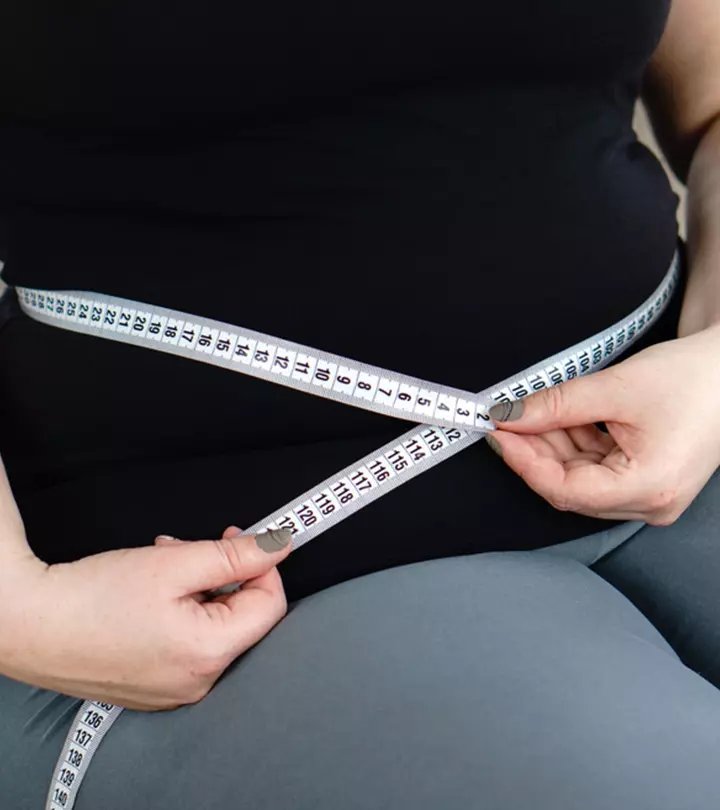




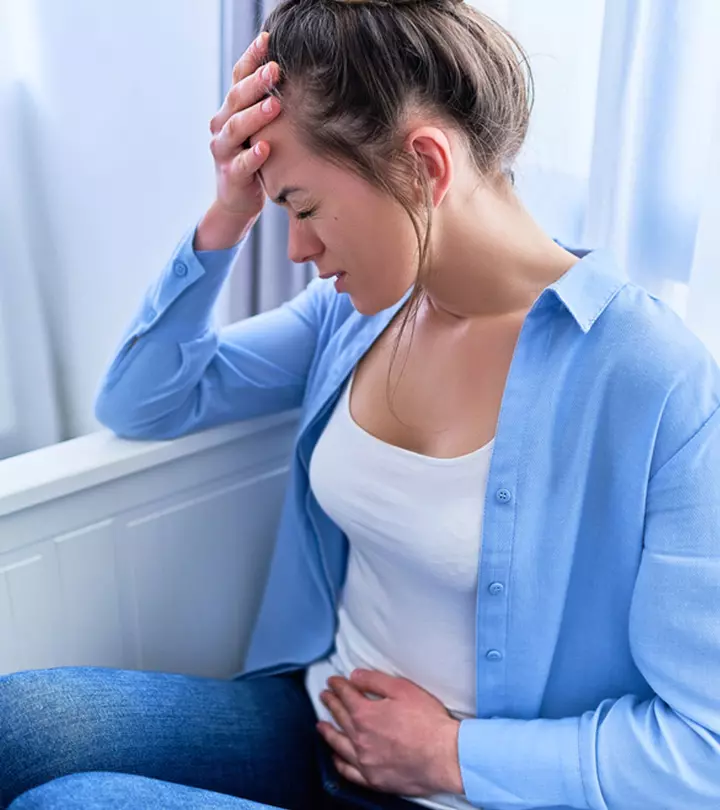
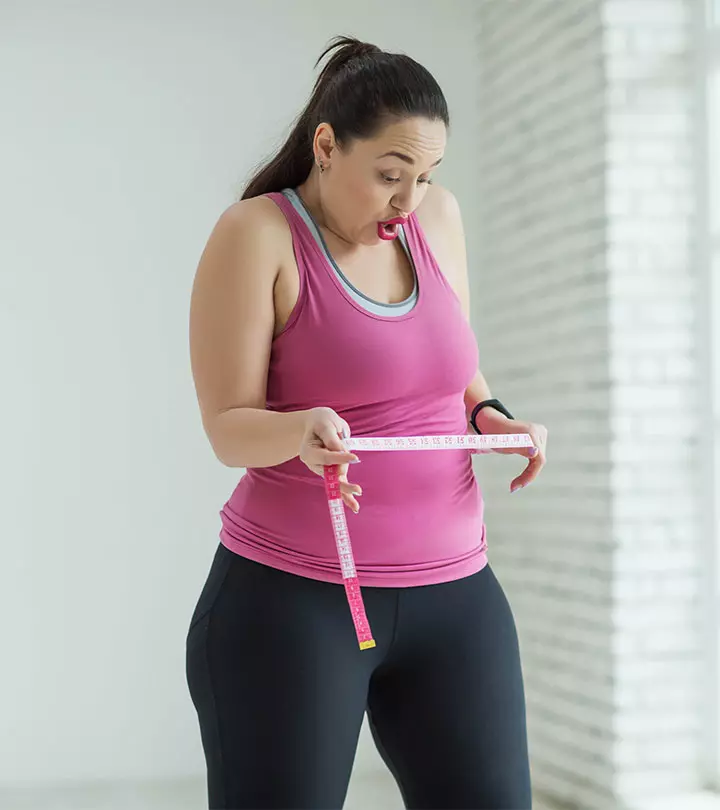
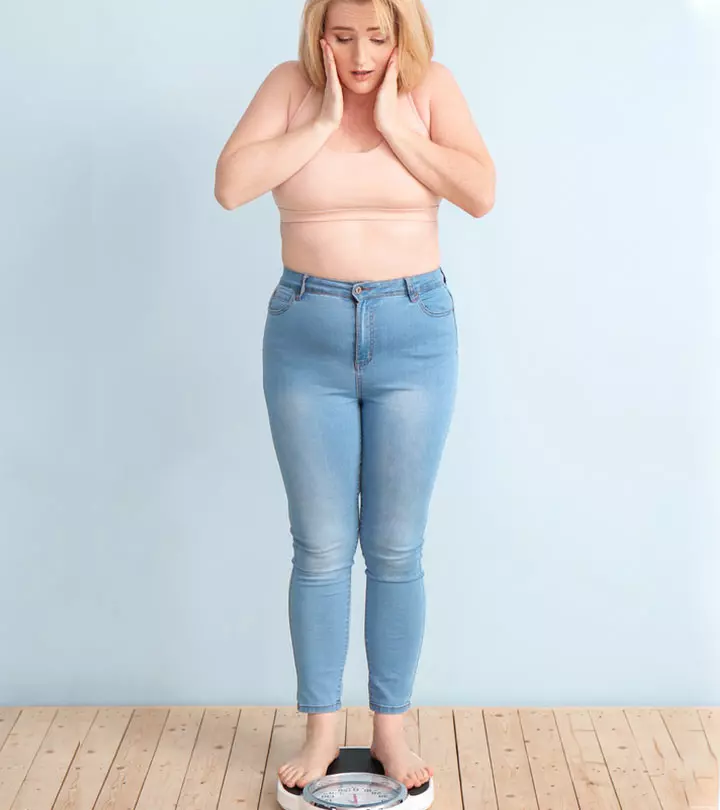
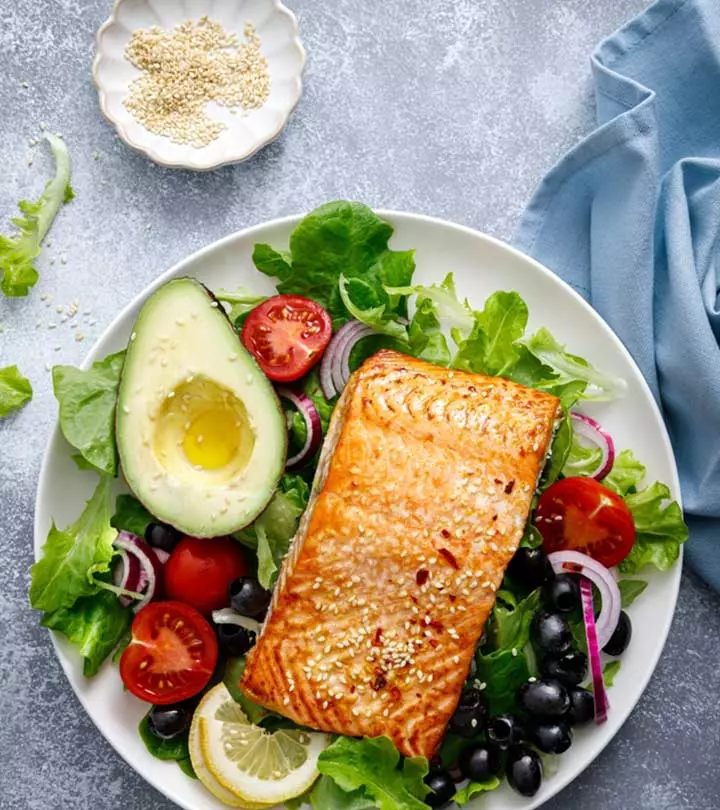

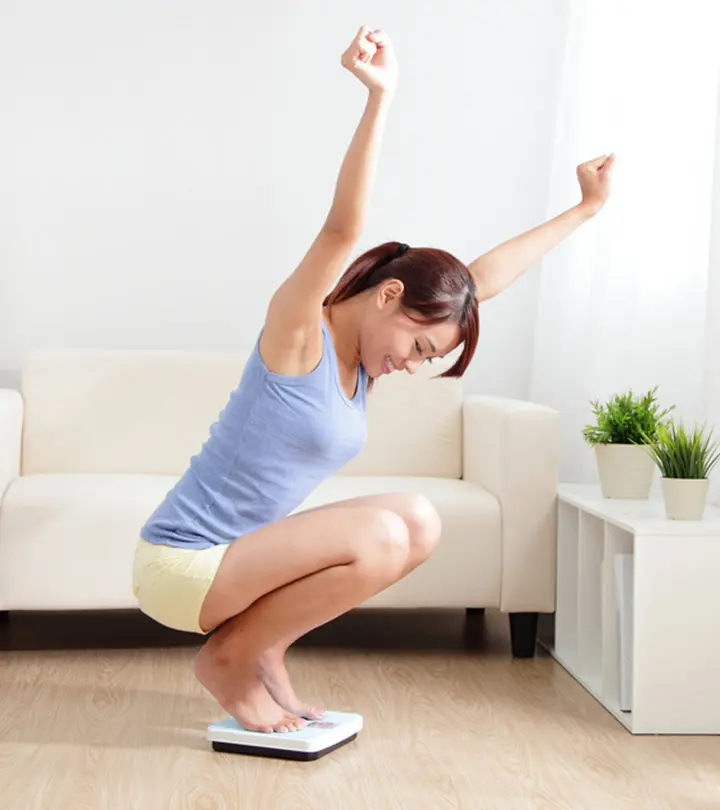

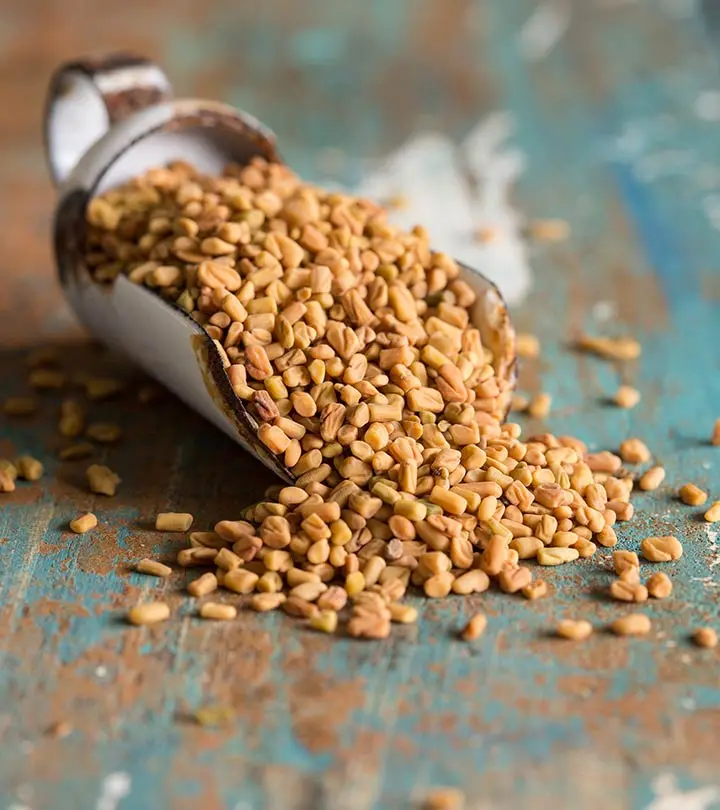
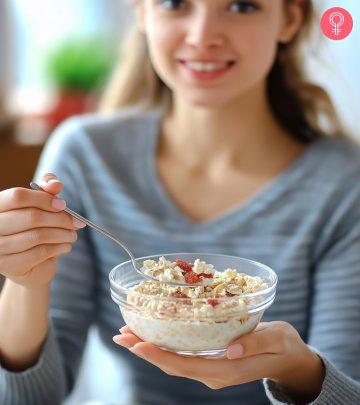
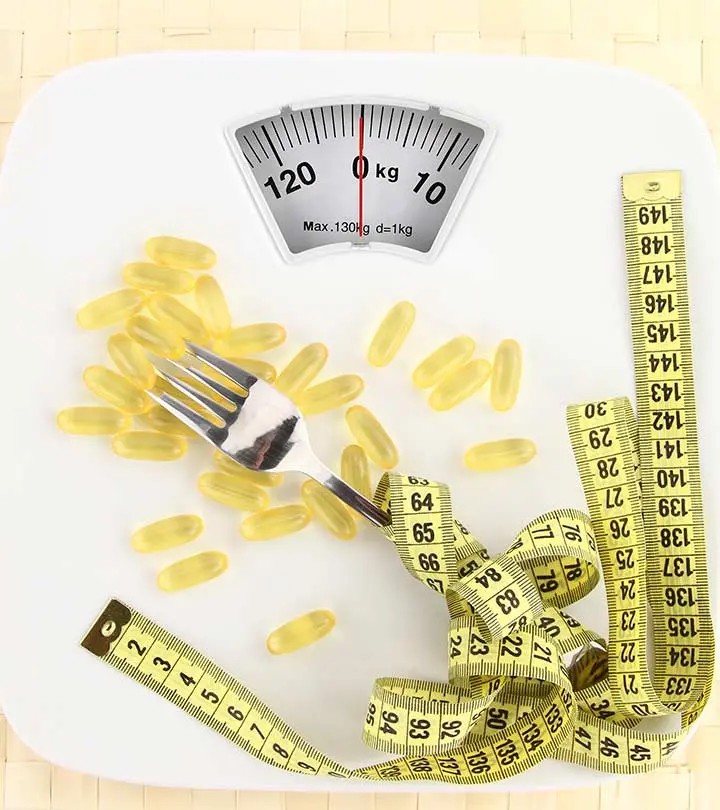






Community Experiences
Join the conversation and become a part of our empowering community! Share your stories, experiences, and insights to connect with other beauty, lifestyle, and health enthusiasts.